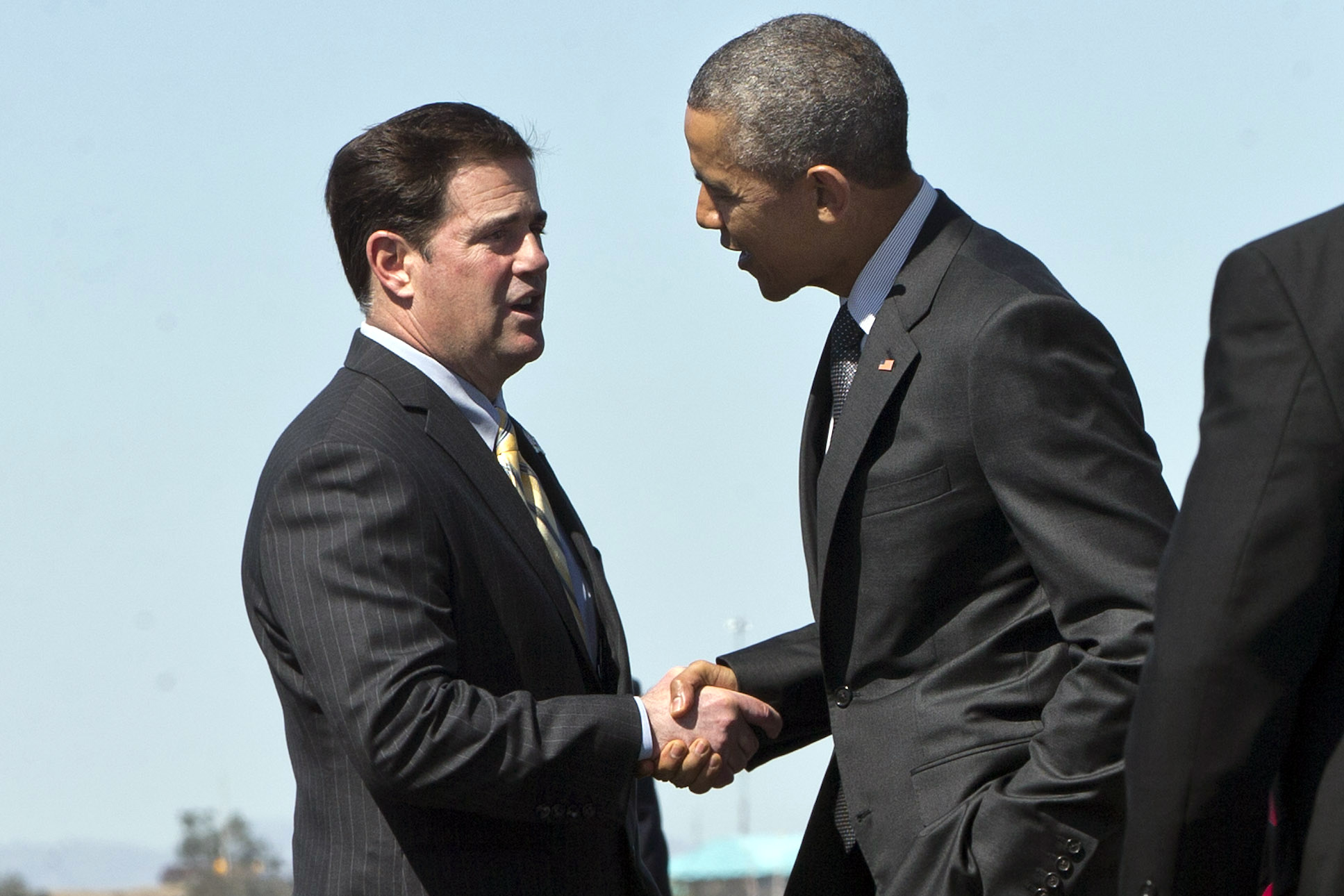PHOENIX -- Arizona's largest newspaper and the Arizona Association of Chiefs of Police have sent letters to Gov. Doug Ducey urging him to veto a bill requiring police to keep the names of officers involved in shootings secret for two months.
A lawyer for The Arizona Republic and the chiefs' group both said the waiting period isn't needed because current law allows agencies to withhold names if an officer's safety could be at risk.
More importantly, Republic attorney David Bodney said the way an amendment was crafted either intentionally or unintentionally would shield any officer's name in any disciplinary report or action forever. "Simply put, this provision represents either a colossal drafting error or a surreptitious effort to gut the transparency of the law enforcement disciplinary process," Bodney wrote.
Ducey spokesman Daniel Scarpinato said the governor was still reviewing the legislation. The bill passed both the Senate and House with bipartisan support. Ducey has until Monday to sign or veto the bill.
The sponsor of Senate Bill 1445, Sen. Steve Smith, R-Maricopa, said the Republic's lawyer is reading the statute incorrectly.
"That person is categorically wrong either in his interpretation of that language or he's completely falsifying what that bill actually says," Smith said. He also vowed to work to change the law if it becomes law if the Republic and police chiefs' group are right.
"Well of course, but that's not going to happen, because he's not right," Smith said. "The language is crystal clear. It does not preclude any information from being withheld other than the name and the photo. It's just that simple."
Sen. John Kavanagh, R-Fountain Hills, also said Thursday that he believes the proposed law is being misread. He's said the measure is needed to protect officers who names and addresses spread like wildfire in the Internet age.
"The simple fact remains that we live in a world where misinformation can put everybody in jeopardy, especially police officers," Kavanagh said during debate earlier this week. "And until we get those facts straight, we need to shield those cops and their families from being assassinated by lunatics or political zealots."
Tucson Police Chief Roberto Villasenor, writing as president of the chiefs' group, said current public records law allows chiefs to do just that, and that its blanket prohibition of releasing names before 60 days is problematic.
"This proposed new law does not take into consideration the practical realities of these complex situations," Villasenor said. "If the name of the officer involved gets out via social media, a police chief would still not be able to discuss the officer's name or respond to the media until the sixty-day time period has elapsed unless permission had been g1ven."
The bill was prompted by police shootings in Ferguson, Missouri, and New York that brought scrutiny to the officers involved. Smith and other police supporters said it was designed to protect officers from public attacks while cases are investigated.
The bill requires police departments to get an officer's permission to release the name sooner unless they are arrested.
Currently, Arizona public records laws require the release of the officer's name as soon as possible after an incident, unless the agency cites specific reasons for a temporary delay. In practice, agencies typically release the name within several days of the incident.
